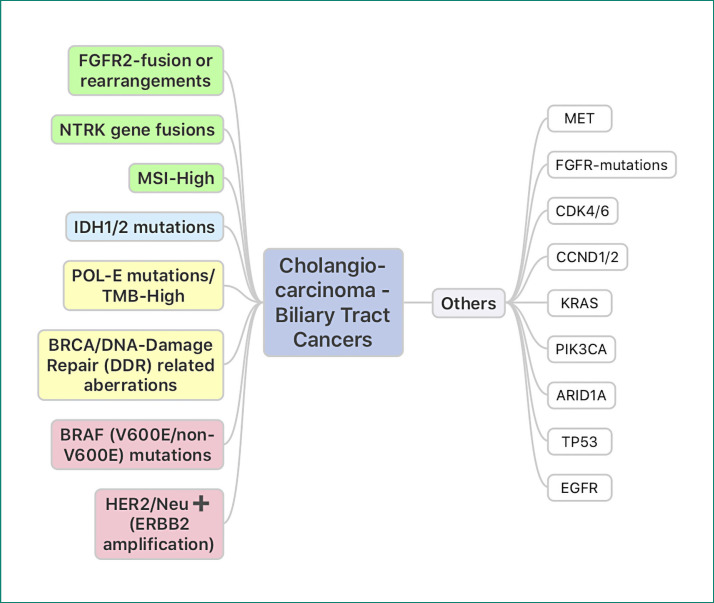Fig. 1.
Cholangiocarcinomas (biliary tract cancers) are often referred to as “target-rich. ” As depicted in the figure, this is secondary to the increasing number of “actionable” targets for which there are either approved drugs or trials with biological rationale and/or preliminary results already showing activity. This highlights the importance and value of moving toward mandatory tumor-based somatic panel-based genetic testing to test for the presence of these targets in patients with cholangiocarcinoma. These often tend to be mutually exclusive. While FGFR2 fusion or rearrangements and IDH1/2 mutations are often seen in intrahepatic cholangiocarcinomas, BRAF-V600E mutations and HER2/Neu-positive tumors predominate in the subset of extrahepatic cholangiocarcinomas and/or gallbladder cancers [1, 2, 3].

